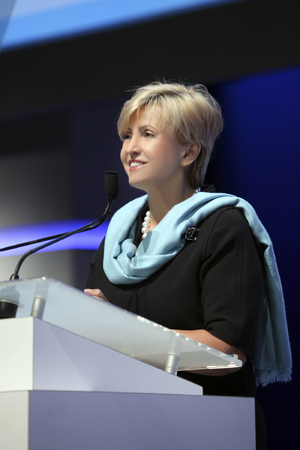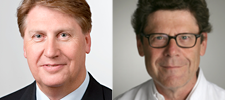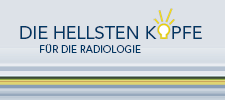INTERVIEW RÖNTGENVORLESUNG
Our greatest challenge is the dissemination of knowledge and expertise
Hedvig Hricak, MD, PhD, is Chair of the Department of Radiology at Memorial Sloan Kettering Cancer Center, New York City, and will hold this year’s Röntgen lecture at the German Röntgen Congress in Leipzig. In our interview she explains the significance of precision oncology and what challenges oncology is facing these days.
 Dr. Hedvig Hricak, Chair of the Department of Radiology at Memorial Sloan Kettering Cancer Center, New York City, USAThe topic of your Röntgen lecture is “Oncologic imaging: paving the way to precision oncology?” What exactly is “precision oncology”?
Dr. Hedvig Hricak, Chair of the Department of Radiology at Memorial Sloan Kettering Cancer Center, New York City, USAThe topic of your Röntgen lecture is “Oncologic imaging: paving the way to precision oncology?” What exactly is “precision oncology”?
Precision oncology is part of precision medicine—the delivery of the right treatment, to the right patient, at the right time. It consists of the ability to identify the key molecular features of a tumor (or tumors) in a specific patient and adjust the treatment accordingly. Hence, molecular diagnostics are the key to its success. Because imaging has the ability to provide spatially and temporally localized molecular information, it has many critical roles to play in both the development of precision therapies and the delivery of precision cancer care.
What challenges is oncology currently facing?
Although preventive measures have produced decreases in incidence for some cancers in selected regions, overall, the incidence of cancer is rising at an alarming rate around the world and especially in developing countries. Therefore, we need to pay much more attention to prevention and screening. Mainly in the developed world, mortality for some cancers has improved because of better screening, more precise treatments and the development of targeted therapies. Imaging is essential at every step of cancer care, from screening and diagnosis, to treatment planning, implementation, and follow-up. However, optimal execution and interpretation of oncologic imaging requires specialized knowledge, and the supply of adequately trained oncologic imaging specialists is insufficient to meet the demand not only in developing countries, but in developed countries as well. With respect to oncologic imaging, our greatest problem is dissemination of knowledge and expertise.
Which advice are you giving young radiologists who want to enter the field of oncology?
Oncologic imaging is an expanding field that has many branches and requires special training. It has a powerful impact on patient care and is both challenging and rewarding. Whatever path you choose to take, work hard, have a passion for what you do, learn one new thing every day and never stop asking questions.



